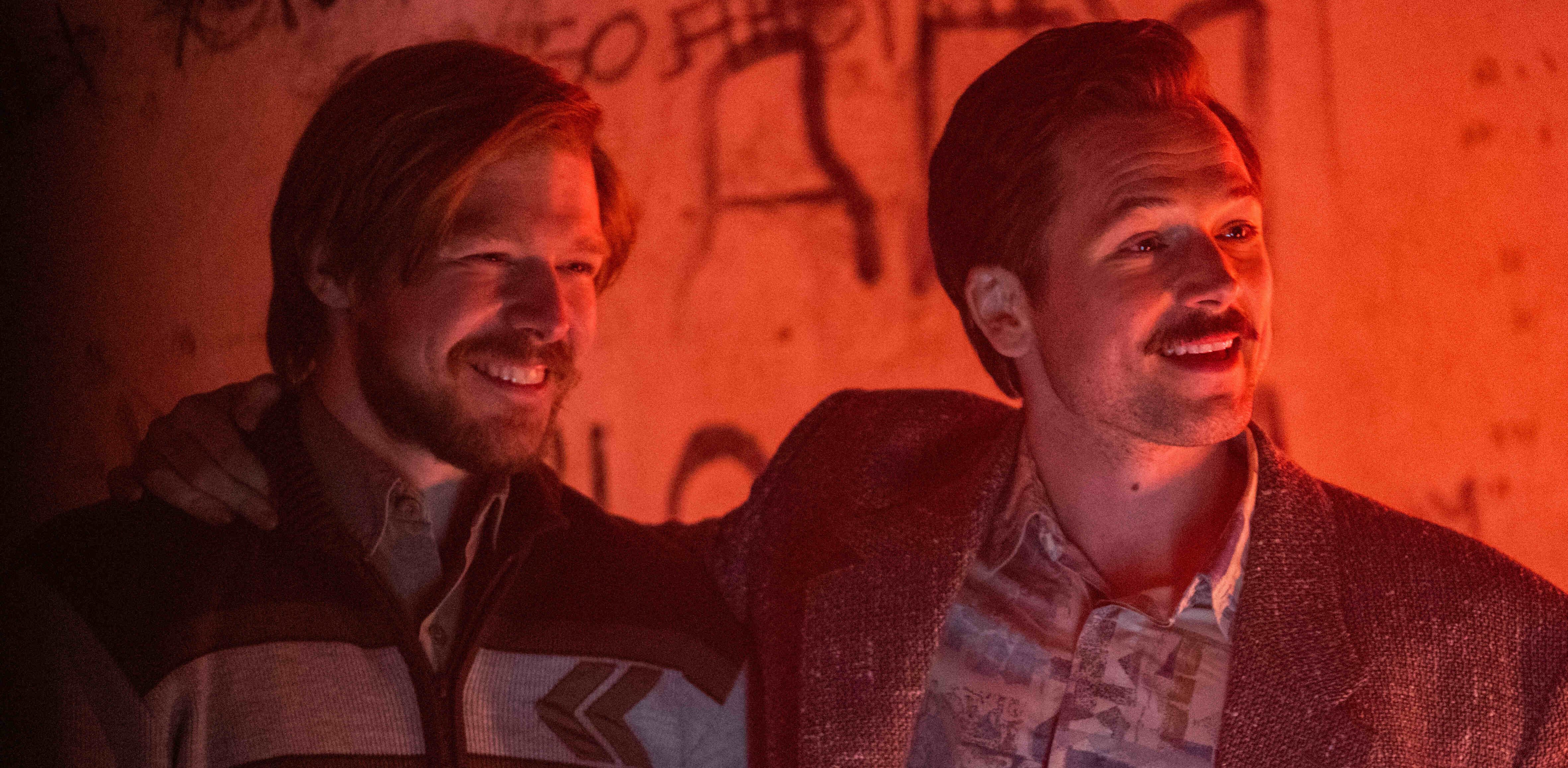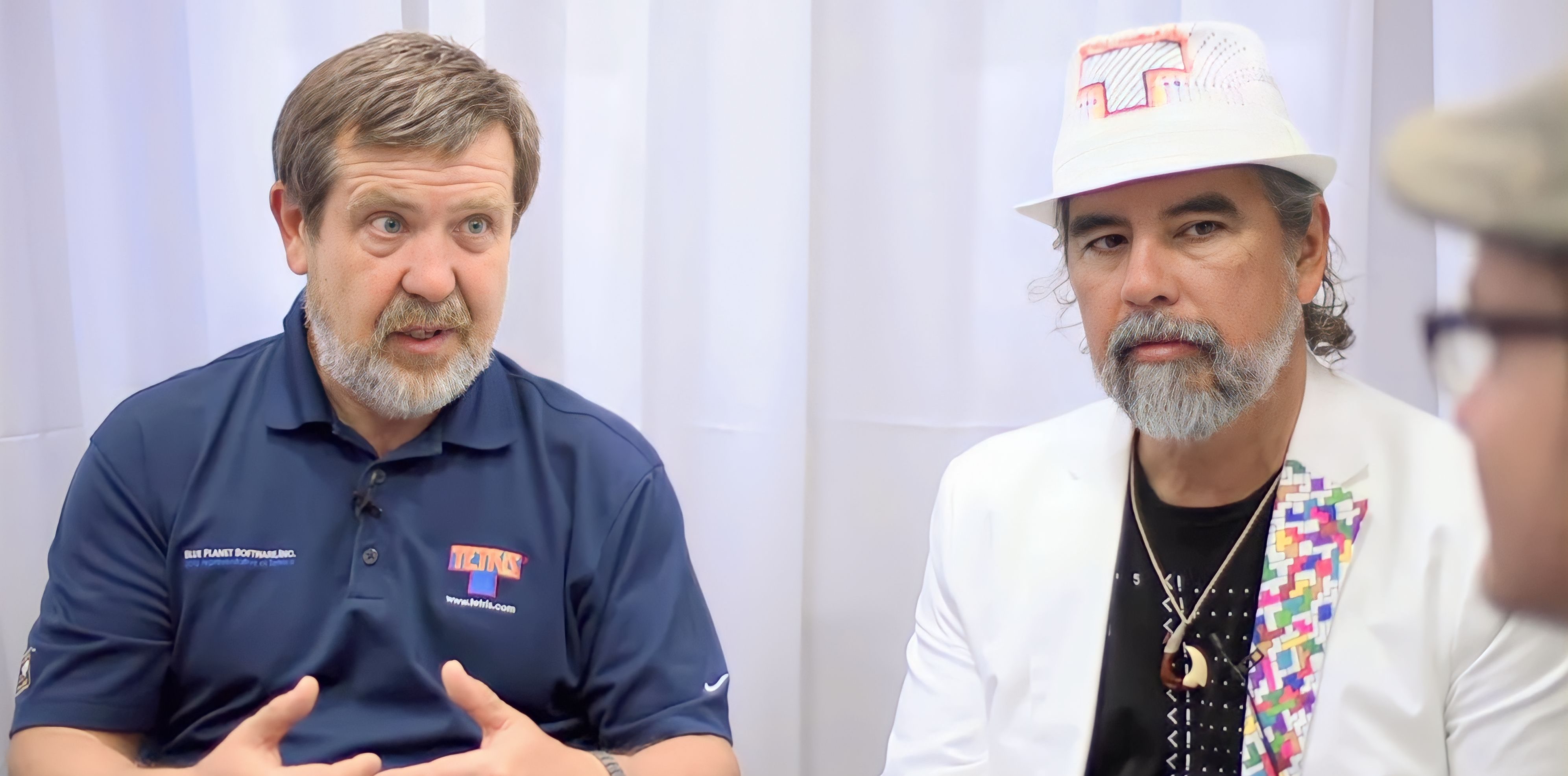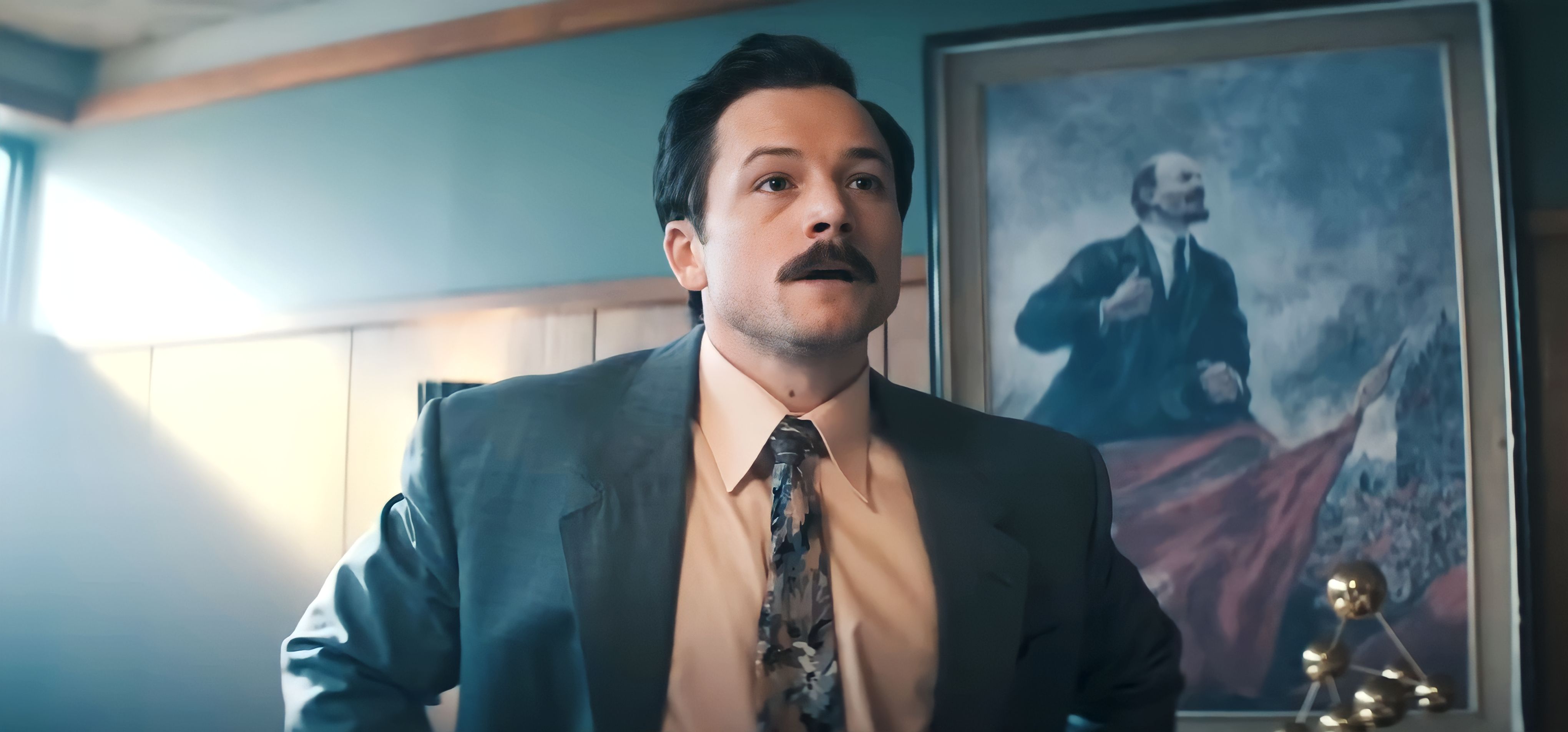Directed by Jon S. Baird, Apple TV+’s period film ‘Tetris’ revolves around Henk Rogers, a Japan-based software businessman who owns Bullet-Proof Software. Henk discovers ‘Tetris,’ a Russian game, and buys its rights to publish the same in Japan. The businessman joins hands with Nintendo, one of the largest video game companies in the world, to expand the availability of the game he loves. When Nintendo develops “Game Boy,” Henk promises them the handheld rights to ‘Tetris’ and ends up in Soviet Russia to garner the same. Since ‘Tetris’ is one of the most popular games of all time, the viewers must be eager to know whether the film is a true account of the history of the game. Here’s everything you need to know about the same!
Tetris: Based on Henk Rogers’ Life
Yes, ‘Tetris’ is based on a true story. Screenwriter Noah Pink wrote the film based on Henk Rogers’ real-life experiences of acquiring the rights to ‘Tetris,’ created by Alexey Pajitnov, who later became his friend and business partner. Towards the late 1980s, Henk discovered ‘Tetris’ at an expo in Las Vegas. The game was displayed by Spectrum Holobyte, a software company owned by Robert and Kevin Maxwell’s Maxwell Communications Corporation. Henk, captivated by the game, bought the rights to the same to publish it in Japan, where his company Bullet-Proof Software was based. He then struck a deal with Nintendo to include the game in the company’s video game console Nintendo Famicom.

When Nintendo revealed their development of “Game Boy” to Henk, the businessman saw an opportunity he couldn’t miss. He informed the company’s officials that he would get them the handheld rights to ‘Tetris’ so that they can release Game Boy with the game. That was when Henk reached out to Robert Stein, the man who brought ‘Tetris’ to the West. Upon realizing that Stein didn’t have the handheld rights to the game, Henk went to Moscow to acquire the same. He met with Nikolai Belikov, the president of Elektronorgtechnica AKA ELORG, who acquired the game from its creator Pajitnov. Stein and Kevin Maxwell also arrived in ELORG for the same rights and the three of them reportedly weren’t aware of the other two competitors’ efforts to acquire the rights.
While Henk was in Moscow, he befriended Pajitnov over their interests in games. Belikov then limited Stein’s rights to the game with an updated contract, which allowed Nintendo to acquire the licenses of the game for both home and handheld consoles. Henk then rushed to the United States to meet Minoru Arakawa, the founder of Nintendo of America. Arakawa signed a contract with ELORG with the help of Henk for acquiring the video game console rights of ‘Tetris.’ When Nintendo acquired the same, Robert and Kevin Maxwell’s console rights to the game got terminated. According to Daniel Ichbiah’s ‘La Saga des Jeux Vidéo,’ Robert Maxwell even contacted Soviet Union leader Mikhail Gorbachev to cancel ELORG and Nintendo’s contract but Henk and the Japanese company ended up having the last laugh.

Screenwriter Noah Pink wanted to conceive ‘Tetris’ as a thriller rather than a typical biographical film. There are no reports that suggest a Soviet Communist Party leader named Valentin Trifonov was involved in Henk’s negotiations with Belikov or KGB agents chased Henk and Nintendo employees for snatching their contracts. Pink must have conceived Trifonov and his storyline to add the tension of a spy thriller to the narrative. “We’re not doing this documentary version of [the Tetris story]. […] you know, to make a two-hour version of it, you need to sort of Hollywood-ize, if that’s a word, the tale,” director Jon S. Baird told Polygon about the creative licenses he and Pink took to conceive the film.
Pajitnov, the creator of ‘Tetris,’ approved of these creative liberties as he was involved in the screenwriting process from the start. “We [Pajitnov and Henk] did our part to make it as truthful as possible, but we always understood we needed to compromise on several points. At the end of the day, we have our lives squeezed into the very short two-hour movie, and some exaggeration is kind of natural at that point. But I want to say that, spiritually and emotionally, it’s a very right and very truthful story told from the screen,” the Russian video game creator told Polygon in the same interview.
The real-life Henk Rogers also had Pajitnov’s approach. “We didn’t do anything without their [Henk and Pajitnov’s] knowledge… And Henk said, ‘Look, everything you’ve got is 100% true to the emotional journey that me and Alexey had.’ I thought it was a lovely way of saying, ‘Yeah, go on and take artistic license,’” Baird added. Rather than factual accuracy, Baird and Pink aimed for portraying the emotional challenges Henk and Pajitnov faced to bring ‘Tetris’ to the West. “The filmmakers really captured the bleak feeling of the Soviet Union and the fear that both Alexey and I felt during that time. I cried the first time I saw the film. I’ve now seen it four times and I look forward to watching it again,” Henk told Forbes.
Ultimately, ‘Tetris’ is a tale that depicts how Henk and Pajitnov, two individuals from highly distinctive backgrounds, become friends. As the film depicts, Pajitnov eventually moved to the United States and joined hands with Henk to own the Tetris Company, which managed the rights to the game on all platforms. The blind trust Pajitnov has in Henk in the film isn’t fictional either. When asked about the same after the film’s premiere at South by Southwest in a panel discussion, the video game creator replied, “Because that’s what happened in reality — that’s what actually happened. First of all, we were really estranged. But later on, we [realized] that we’re both doing the same [thing], that we are colleagues, that we love games. We designed the game, we became friends and we’re still friends.”
Read More: Where Was Apple TV+’s Tetris Filmed?


You must be logged in to post a comment.